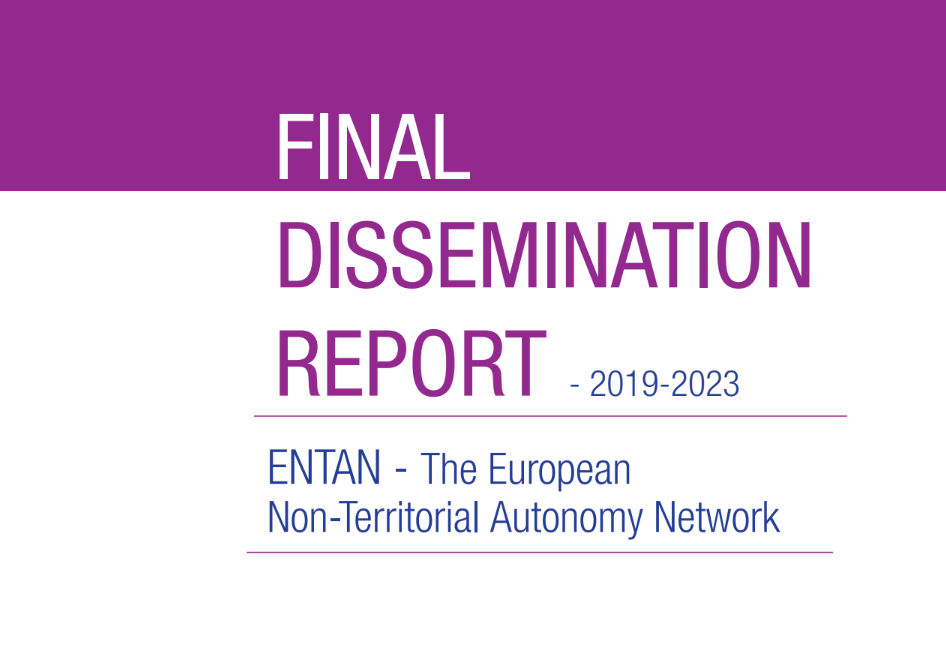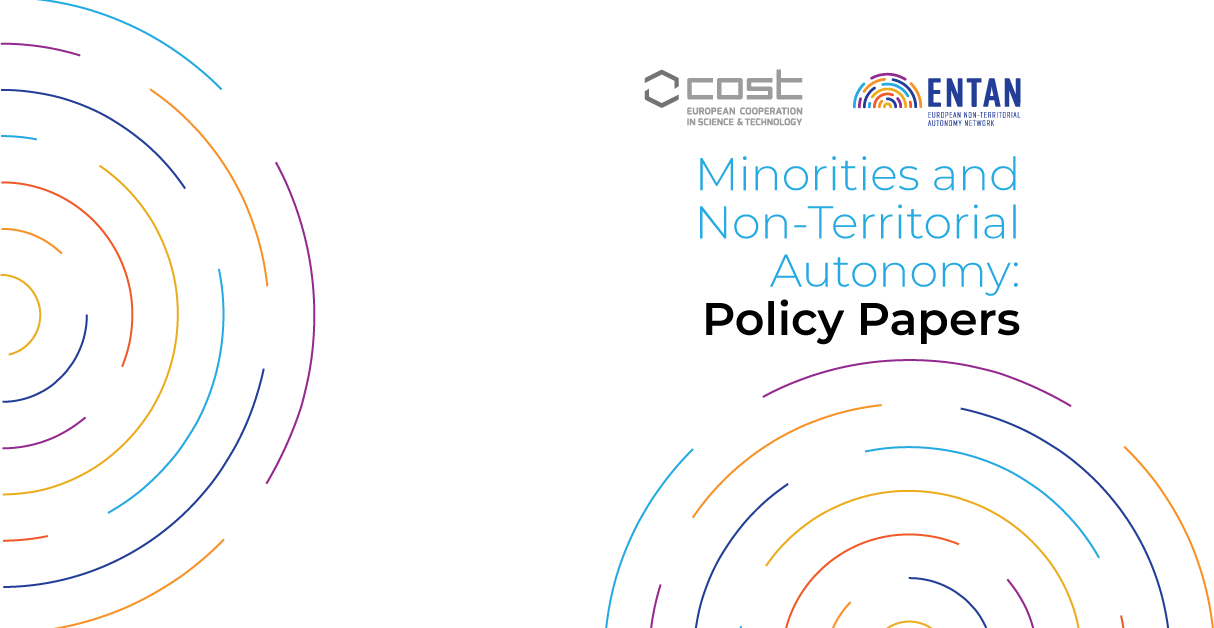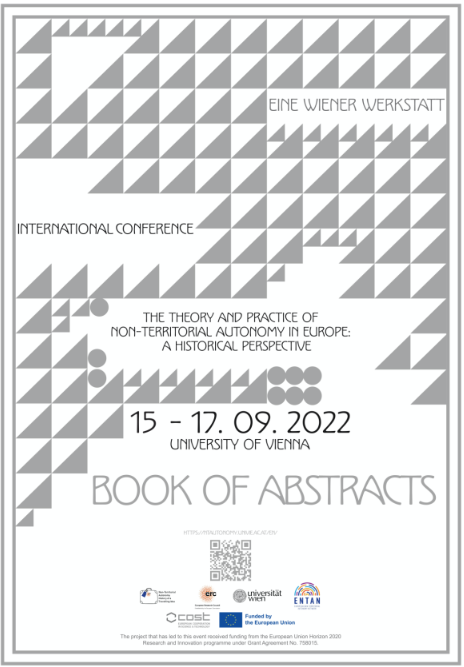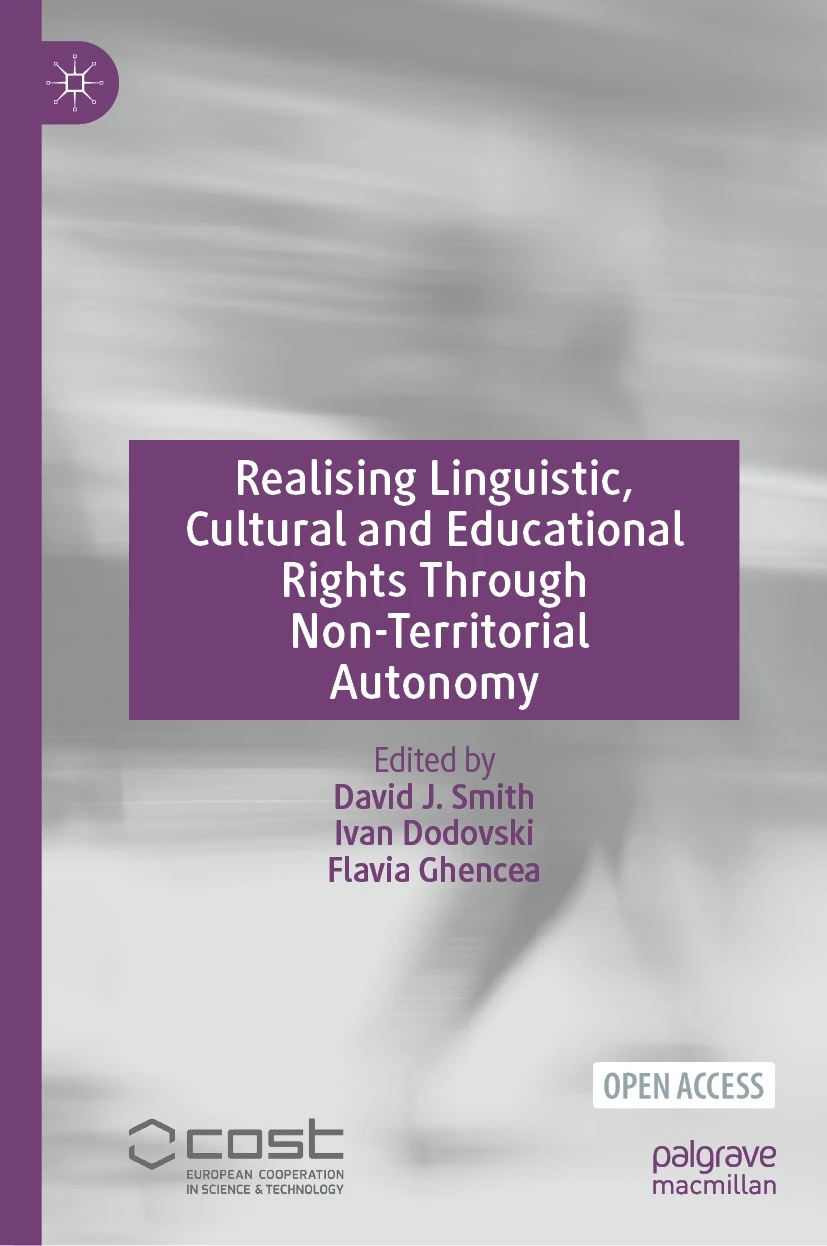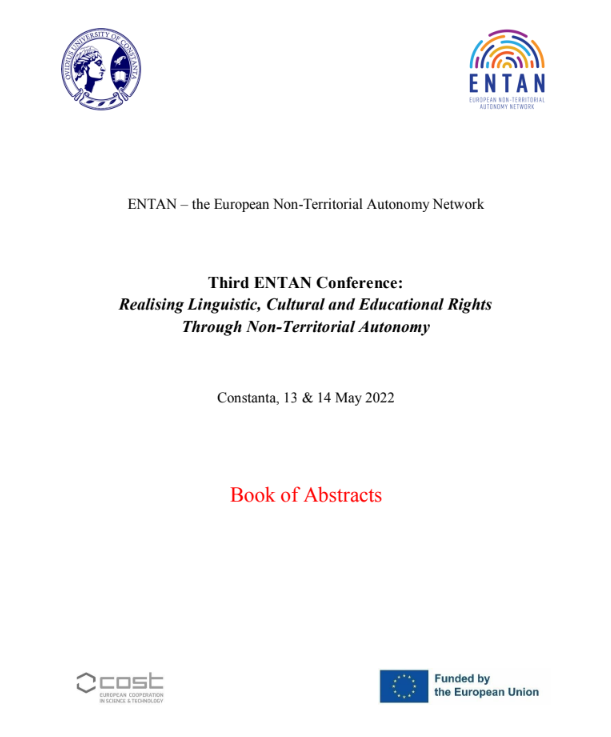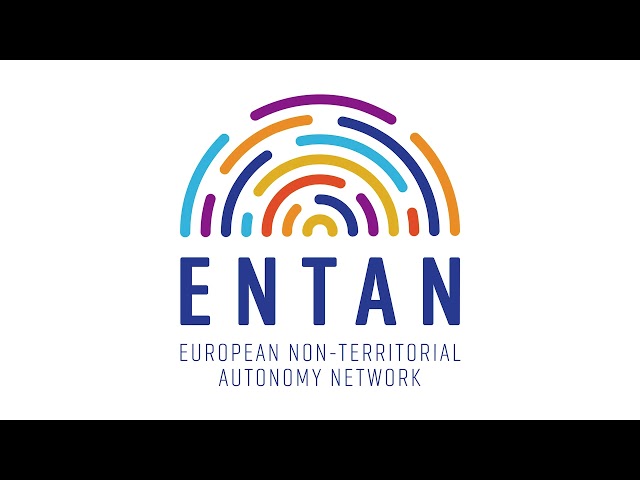Publications
On the Muslim Turkish minority of Thrace, Greece: Long-lasting problems that require immediate solutions
ENTAN policy paper No. 12 (March 2023) ISSN 2671-3896
Publications
Strategy-making of national councils of national minorities in Serbia as a tool of community building
ENTAN policy paper No. 11 (February 2023) ISSN 2671-3896
Publications
Land Rights as Cultural Rights: The Case of the Sámi People
ENTAN policy paper No. 10
(January 2023)
ISSN 2671-3896
Publications
Realising Linguistic, Cultural and Educational Rights Through Non-Territorial Autonomy
Third ENTAN conference proceedings volume (Palgrave Macmillan, 2023)
Publications
Reviving Minority Identities through Cultural Autonomy: Evidence from Estonia
ENTAN policy paper No. 9 (December 2022) ISSN 2671-3896
Publications
Can National Councils of National Minorities Be Effective Channels for Greater Political Participation of Women from National Minority Communities in Serbia?
ENTAN policy paper No. 7 (September 2022) ISSN 2671-3896
Publications
Cultural autonomy, Islamic minority schools and their prospects as forms of non-territorial autonomy in western Europe
ENTAN policy paper No. 6 (August 2022) ISSN 2671-3896
Publications
Can non-territorial autonomy enhance indigenous peoples’ right to self-determination?
ENTAN policy paper No. 5 (May 2022) ISSN 2671-3896
Publications
Non-territorial Autonomy of Whom, by Whom and for Whom?
ENTAN policy paper No. 4 (April 2022) ISSN 2671-3896
Publications
Non-Territorial Autonomy as an Instrument for Effective Participation of Minorities
Second ENTAN conference proceedings volume (September, 2021)
Publications
“One size fits all”? Challenges of ethnic categorisation when implementing non- territorial autonomy
ENTAN policy paper No. 3 (October 2021) ISSN 2671-3896
